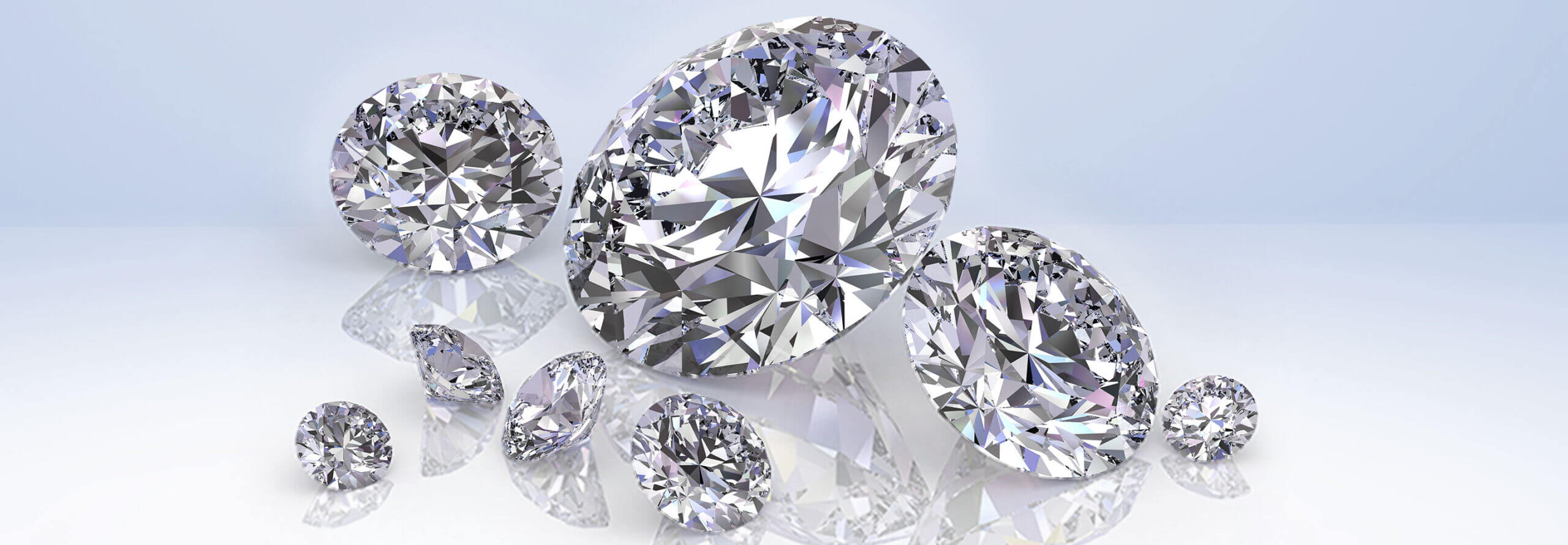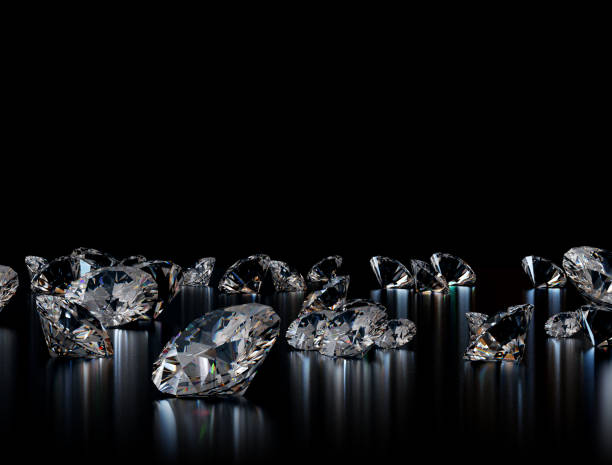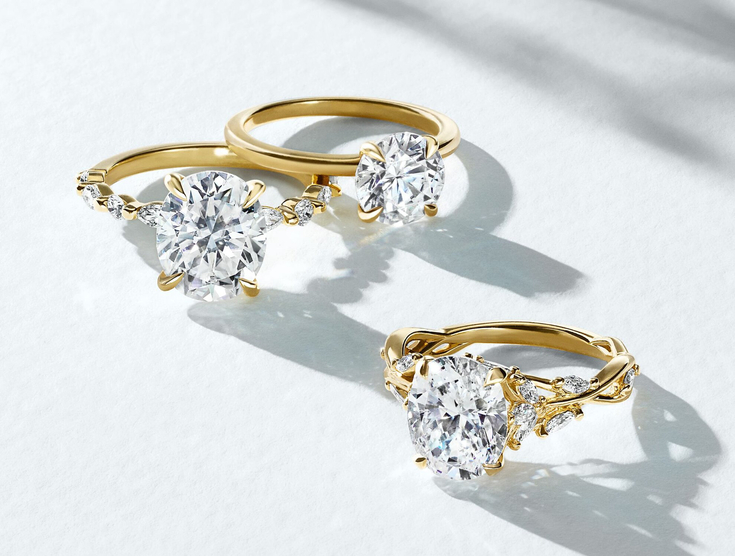1. Overview of GIA and IGI
GIA (Gemological Institute of America):
Founded in 1931, the GIA is one of the most respected and established gemological institutions in the world.
It is widely recognized for its stringent, consistent grading standards and commitment to research and education in gemology.
GIA is often considered the gold standard in diamond grading and has a significant impact on the diamond industry.
IGI (International Gemological Institute):
Established in 1975, igi vs gia is another respected institution in the world of diamond grading, but it is often regarded as a more approachable and affordable alternative to GIA.
IGI has labs worldwide and offers grading services for diamonds, gemstones, and jewelry. It is particularly well-known in the jewelry industry for its grading of fashion jewelry and smaller stones.
2. Grading Standards: Consistency and Accuracy
GIA Grading:
GIA is considered the gold standard for diamond grading. Its grading process is widely recognized for its accuracy, consistency, and objectivity.
GIA uses the strictest interpretation of the Four Cs (Carat, Cut, Color, and Clarity) and applies them uniformly to all diamonds.
GIA’s grading is considered the most authoritative by most jewelers and diamond buyers. Their reports are known for being thorough, reliable, and difficult to challenge.
IGI Grading:
IGI also uses the Four Cs to grade diamonds, but its grading is often seen as more lenient than GIA’s.
Some industry professionals believe that IGI tends to give diamonds slightly higher grades on the clarity and color scales compared to GIA, leading to diamonds graded by IGI potentially appearing to be of a higher quality than they are when compared side-by-side with GIA-certified diamonds.
While IGI is reputable, it has occasionally faced criticism for being less strict in its grading standards. This is particularly important when purchasing diamonds online, as an IGI-graded diamond might appear more attractive due to higher grades but may not always meet the expectations set by GIA standards.
3. Reputation and Industry Acceptance
GIA:
The GIA is universally accepted and trusted by the diamond industry. It is regarded as the most prestigious and authoritative diamond grading institution globally.
GIA’s grading reports are often seen as a benchmark for diamond quality, and diamonds graded by GIA tend to hold higher value on the market.
GIA reports are considered more transparent and objective, with very detailed descriptions and consistent grading across all labs worldwide.
IGI:
IGI has a strong reputation, particularly in the retail and wholesale jewelry markets. It is trusted for grading diamonds and gemstones in the more affordable to mid-range price segments.
However, compared to GIA, IGI is often considered less influential in terms of overall reputation. While IGI’s reports are widely accepted, they are not as universally regarded as those from GIA in terms of trustworthiness.
Some jewelers and buyers may prefer GIA-certified diamonds over IGI for this reason.
4. Pricing and Cost Differences
GIA:
Due to the thoroughness and high standards of GIA’s grading process, GIA-certified diamonds are often priced higher. This is because diamonds with a GIA report are generally considered to be of higher quality and reliability.
The certification process from GIA can be more expensive, which can impact the final price of the diamond.
IGI:
IGI certification is typically less expensive compared to GIA certification, which can make it a more affordable option for retailers and buyers.
While the lower cost of IGI certification might make it attractive, it’s important to keep in mind that the perceived value and resale potential of an IGI-graded diamond could be lower than a GIA-graded diamond in the secondary market.
5. Report Details and Transparency
GIA Reports:
GIA reports are extremely detailed and include comprehensive information on the diamond’s proportions, symmetry, and any notable inclusions or flaws. GIA uses advanced technology like laser inscription to help verify the authenticity of the diamond.
GIA also uses a scale-based system that ensures a high degree of consistency in grading lab grown diamonds. Each report includes a diamond plot to map out the stone’s internal and external characteristics, providing a visual of its clarity and any imperfections.
IGI Reports:
IGI reports provide a lot of useful information, but they may not be as detailed as GIA reports, especially in terms of clarity plots or the full breakdown of the diamond’s proportions.
While IGI reports are professional and reliable, some buyers find them less comprehensive compared to GIA’s reports, particularly when it comes to detailed analysis of the cut or internal features.
6. Global Reach and Recognition
GIA:
GIA is globally recognized and accepted by the vast majority of jewelers, collectors, and auction houses. Its reports are highly sought after by high-end retailers and are often used to determine the market value of diamonds.
If you plan to resell your diamond or pass it on as an heirloom, having a GIA report can increase the stone’s resale value and overall desirability in the market.
IGI:
IGI is also internationally recognized but is more prominent in certain markets, such as Europe and Asia, and tends to be more prevalent in fashion jewelry grading.
While IGI-graded diamonds can be valuable, they may not carry the same weight as a GIA-graded diamond in terms of resale or recognition in the luxury sector.
Conclusion: GIA vs. IGI – Which is Better?
GIA is the preferred choice for buyers who are looking for the highest level of accuracy, consistency, and credibility. It is ideal for those investing in high-value diamonds and seeking the most respected and widely accepted certification. GIA diamonds generally carry a higher resale value and are the industry standard.
IGI, on the other hand, offers a more affordable option for those purchasing smaller diamonds or diamonds that may not require the strictest level of grading. While IGI is still a reputable organization, it may not always match the rigorous standards of GIA, which could affect how the diamond is perceived by other buyers or investors.






More Stories
HPHT vs CVD: Understanding the Difference in Lab Diamonds
Diamonds Better Exploring the Benefits and Considerations
Choosing Between Platinum and Gold for Your Lab Diamond Ring